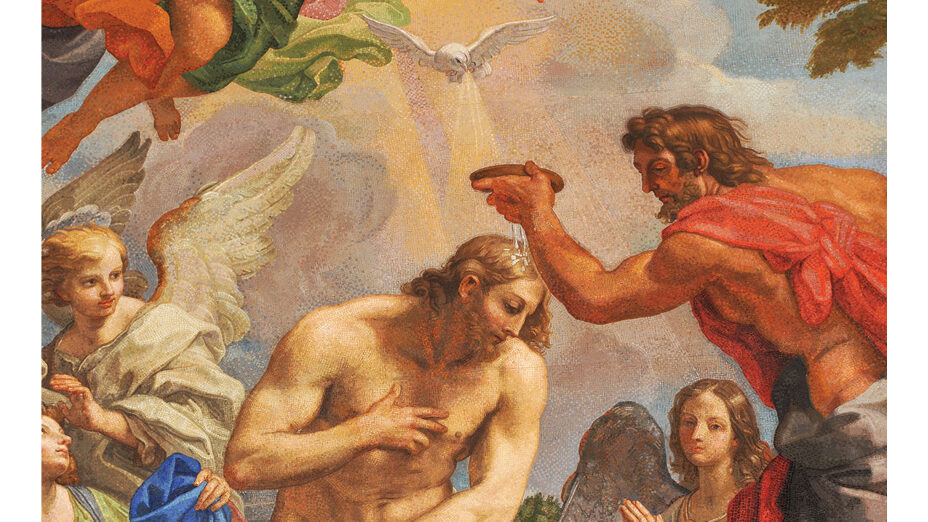January 12, 2025
Dear Parishioners,
This week we commemorate the baptism of Jesus. This Sunday is also the last day of the Advent-Christmas season. On Monday, we will begin the first week of the Ordinary Time. All these decorations will be gone. The Church wants us to prepare ourselves for the new season by embracing our identity as followers of Jesus. Our Christian identity derives all its meanings and implications from the very identity of Jesus. In the event of the baptism of Jesus, God reveals to us who Jesus is: the Messiah, the Son of God.
As the Son of the Most High, who is sinless, why did Jesus want to receive baptism? Isn’t baptism for the cleansing of sins, especially, of the original sin? This is a good question, and our ancestors in faith did ask the same question. To answer it, we need to understand the full meaning of baptism.
In the ancient world, water is a symbol of both life and death. When a gentile converts to Judaism, he goes through the ritual of Tebilah, which is a rite of passage. There are three stages in such a rite: the separation from a previous state, an in-between state called liminal period, and the reception into a new state. The gentile wishing to become an Israelite must be separated first from his old gentile state. And the way to separate him from his old state is to return him to the primal womb, the water of chaotic nothingness. So, he is immersed in water. While being immersed in water, the convert is symbolically severed from his gentile state; he undergoes a symbolic death, a death to the old self. In this liminal period, he is neither gentile nor Jew; he is returned to nothingness. Then he is called out of the water. Emerging from the water, he is given his new Israelite state. Yahweh has bestowed on him a new life, a life in God and with God’s people.
Baptism not only erases the old self, the self of sins and brokenness, but also brings about a new identity, a new life in God, a new fellowship with other believers. Therefore, Jesus accepted baptism by John the Baptist, not to be cleansed of sins, but to show his total solidarity with us in our sinfulness and to call us to share his identity as the beloved of God.
We were all baptized. In baptism, we were cleansed of previous sins, both original and
personal. In baptism, we also received a new identity. The cleansing of sin in baptism is a one-time shot, but the new identity as God’s beloved is a life-time process. Whether baptism has any impact on us depends on whether the new Christian identity is really taking shape in our lives. The issue for us, the baptized, then is, What has happened to this God-given identity?
We live in a world of multiple identities. Each one of us has many identities. I am a
Vietnamese, a Jesuit, a priest, an American citizen. To the media, I am an internet user, a
consumer, a shopper, a voter, etc. We are all surrounded by a great number of identity-forming influences. These influences not only compete against each other but also gang up to suffocate our Christian identity. If we are not careful, our identity as Catholics will be soon swallowed up by others.
However, all identities are temporary and fleeting, except for the identity of being a child
of God, the identity of a Christian. Whether we are a president or a pope, a CEO or a worker, all will be nothing when we close our eyes and die. When we stand before the Supreme Judge, Jesus Christ, only the identity of being a child of God will be judged. Therefore, we must cherish our Christian identity above all other identities.
Just as God said to Jesus in his baptism, “You are my beloved Son; with you I am well
pleased,” God said to each one of us in our baptism, “You are my beloved; with you I am well
pleased.” Indeed, God said so not only on the day of our baptism, but he also continues to say so every day of our life, regardless of our behaviors. Do you hear that? I mean, Do you hear that, right now? If you and I really hear that and make it a reality, our life will change, for the better.
In the Most Holy Trinity and in solidarity with you all,
Fr. Duc

